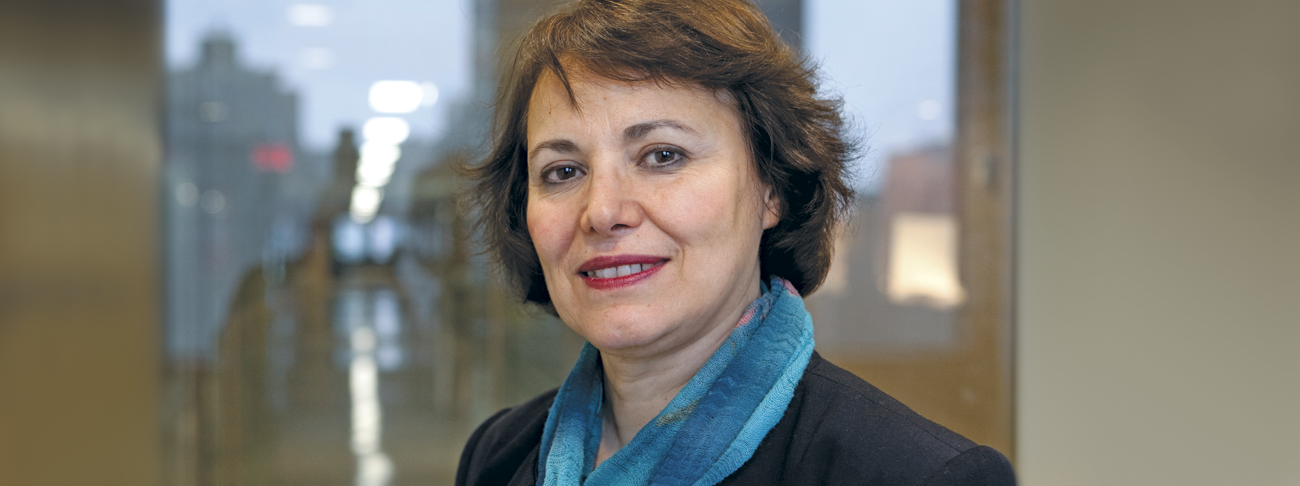
2016 was a traumatic year for Homa Hoodfar. Arrested and detained in Tehran’s notorious Evin prison for 112 days, the retired anthropology professor from Concordia University thought the nightmare would never end. Thanks to diplomatic help from Canada, Oman, Italy and Switzerland and also to an incredible movement of solidarity among academics, Hoodfar was finally released at the end of September. The Bulletin talked with Hoodfar about her ordeal and the importance of academic freedom.
Why do you think the Iranian government placed you under arrest? Freedom of expression and academic freedom are not adequately protected in Iran. The government had a problem with the topic of my research. They didn’t like that I was researching women in politics. I was not looking at the situation of Iranian women in particular, but the government felt threatened. It was not just a question of academic freedom or freedom of expression. The authorities objected to the work I was doing and that is what’s really alarming. At the core of the regime is a security mentality that sees the production of knowledge and the dissemination of information to be a deeply suspicious activity. And it’s not just happening in Iran. We see it in other countries. Egypt is another example.
What role did solidarity and support from your colleagues play in securing your release? The expressions of solidarity and the letters from scholars from around the world were very important. I owe my freedom to that. It was heartwarming to see support coming from not only Canada, but also from the US, Indonesia, Korea, Hong Kong, Sri Lanka, Bangladesh, Nigeria, Senegal … I was surprised to see the extent of academic solidarity and also that the support came from the left and from the right. It played a major factor in helping the Canadian government secure my release.
Why is it important for us to defend academic freedom? Academic freedom is part of freedom of expression, which is a fundamental human right. Academic freedom allows scholars to look at alternative ways to solve problems. It is an essential tool for research independence and particularly is that true in the social sciences and humanities. You can have a society that is advanced technically, but is imbalanced and will not do well if it’s not socially advanced. Iran is a good example. It may have advanced military and industry capability, but socially, it’s very repressed. In totalitarian societies citizens cannot express themselves and dissenting voices are stifled. When I was in prison, it’s one of the things I reflected on. Iran has made considerable advances in science and technology, yet its citizens have no rights to privacy and the government can spy on them without a court order because there is no law to protect individuals. They did it to me; they spied on my emails, listened to my phone conversations and accessed my bank accounts. And they didn’t think it was wrong to do it.
Do you draw parallels between what happened to you and the recent crackdown on academics in Turkey? Although what happened to Turkey’s academics is more drastic because of the failed coup, I see resemblances. It’s exactly what happened to me. They told me that my work was inciting a revolution. In Turkey, the failed coup is being used to repress professors, especially the ones who advocated for a peaceful resolution of the civil war with the Kurdish minority. If academic research disturbs the narrative they want, the government tries to put pressure on academics by accusing them of treason or something really serious. In my case, they said I disturbed the election results by trying to encourage women to vote. It’s a big compliment. I only wish I did. I was there, yes. But I didn’t talk to any officials, or any candidates and I didn’t even vote. I only read the papers and saw the news. But women in politics are one of my interests as a researcher and it was a reason for them to put me in jail.
It is easy when we look at your case to understand the importance of feminism in other countries like Iran or Egypt, but do you still think that feminism is also important in North America? The struggle is not to achieve our goals. The struggle is when women are not conscious of their rights. This is when there is a danger of losing them. Rights are often retracted in some places more directly than others. In the past, feminism was mostly concentrated on obtaining gender equality. Today, feminism is expressed in a broader way — we seek equal opportunities for all — we want to move toward a just society without discrimination.
Do you fear the election of Donald Trump could have negative effects on academics in the United States? I see a clear threat for minorities and for women. He is the president of the largest economy in the world, his views on women are offensive and he has been very public about it. It can’t be great for women’s rights, or if you happen to be Muslim, Hispanic or black, it will have an impact on you. We have to wait and see — and hopefully I am wrong, but this election will also be very unfortunate for research and for academics.